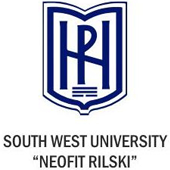What we did in the project
SWU conducted four study circles running from September 2014 till April 2015. We contacted ten supervisors and formed two groups of five supervisors each. The invited people were from the Faculty of Natural Sciences and Mathematics and the Faculty of Engineering (former Technical College). The gender breakdown was 6 female and 4 male (initially the group consisted of 7 female and 3 male) in different positions and ranks – Full Professors – 2 (all female); Associate Professor – 7 (4 male, 3 female); Assistant Professor, PhD – 1 female. The training was conducted by the FESTA team members.
We conducted our last study circle in April 2015 followed by an evaluation session in September 2015. This was conducted as an informal conversation with supervisors and PhD students. The participants were responsive and active and raised a number of questions with respect to supervision.
What we learned in the project
The FESTA project provided an invaluable learning experience. Participation in the WP6.2 has been helpful to enrich our knowledge, our experience and to extend our horizon about three broad areas of concern at the universities today: internationalization and gender inequality in the distribution of intellectual capital; diversity of PhD students and studies, and the models of PhD supervision; etc. We have also got plenty of useful practical information and learned a lot about essential differences between countries with respect to doctoral studies and programmes (e.g. structures, organisation, procedural steps, formal requirements, including practices for selecting doctoral students, current state of funding doctoral education, possibilities for study grants and other funding opportunities for supporting PhD education), the procedures for evaluating successful completion of a dissertation etc., defence, publishing results, etc.
We all have been inspired by the other partners in the project in many ways. Learning from good practices of others is one of the best and most valuable practical way to initiate changes and establish good working infrastructure. The opportunity to discuss with and get advice from people who work in a completely different environment, where there are established measures, policies, practices, etc. regarding gender equality. Collaborating with colleagues from different countries helped us to accumulate information about real cases and practices, know-how, knowledge and experience.
Rectorate, Faculty of Philosophy, Faculty of Engineering, Faculty of Mathematics and Natural Sciences,
66 Ivan Michailov str.
2700 Blagoevgrad
Bulgaria
Tel: + 359 899 820 068
Representatives
Project leader Georgi Apostolov – Vice-Rector for Research and PhD studies, Rectorate and Faculty of Philosphy
Task Leader Ivanka Asenova – Faculty of Philosophy
Task Leader Snezhina Andonova – Faculty of Engineering
Task Leader Dimitrina Kerina – Faculty of Engineering
Task Leader Irina Topuzova – Faculty of Philosophy
Ilia Gjudzhenov – Faculty of Mathematics and Natural Sciences
General Information
Number of employees (2014): 482 Scientific staff: 316 Tech/adm.staff: Full professors: 72 (39% women)
Postgraduate education includes: 313 doctoral students (66% women)
Student body: 14 000 students
Educational programmes: 67 BA (10 in English). 86 MA (20 In English). 20 diploma programmes (continuing education at the level of BA or MA)
Turn-over: 20 mio €. Approximately 75 % of research is funded by external sources
Nine faculties: Faculty of Law and History, Faculty of Mathematics and Natural Sciences, Faculty of Economics, Faculty of Public health, health care and sport, Faculty of Pedagogy, Faculty of Philology, Faculty of Philosophy, Faculty of Arts, Faculty of Engineering
FESTA Project team situated in Faculty of Philosophy
Representing in FESTA: Scientists in the field of management and leadership, gender studies, mathematics, physics, engineering and organizational psychology


